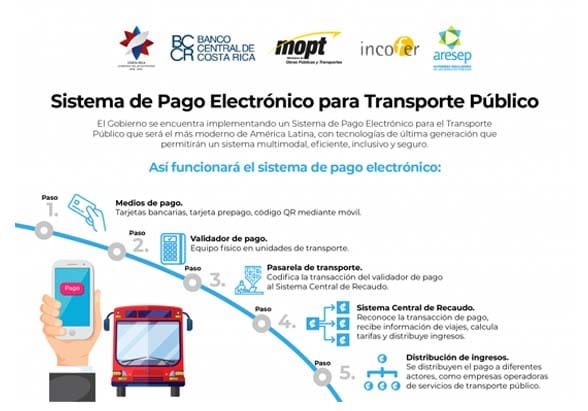
Costa Rica has announced plans to implement a national, multimodal transit ticketing infrastructure that includes support for both QR mobile payments and EMV contactless cards and devices.
The new Electronic Payment System for Paid Public Transport of Persons (SPETP) infrastructure “will allow users to access all public transport services through electronic payment, in order to increase the efficiency of fare collection and provide a higher quality service to the population,” Costa Rica’s government says.
“The design of the SPETP is based on the use of state-of-the-art technologies, with the aim of achieving a multimodal, interoperable, efficient and safe system,” it adds.
The system will employ a central collection system that will receive information on all transportation payment transactions, calculate the correct fares and distribute revenues to the relevant service provider.
Advantages are expected to include:
- Agile and faster access to public transport service.
- Significant savings by operators in handling cash.
- Better security conditions without cash on board.
- Better health conditions for users and drivers.
- Integration of rates and savings on trips that include more than one service.
- Better quality of service and mobility planning.
The project roadmap calls for the SPETP system to be gradually implemented, beginning with train services next year. This will be followed by rollout to urban routes in and around San José and then the rest of the country.
Key milestones include:
- February 2021: Pilot launch on train services, with 20 collectors who will accept payments with debit, credit and prepaid cards.
- July 2021: Rollout to all train services, with collectors who will accept payments with debit, credit and prepaid cards.
- September 2021: Bus services “of the operating companies that sign new concession contracts” will begin to be added.
“The SPETP is being developed under the principle of technological sovereignty, so that it does not depend on specific providers and the country can manage its evolution, its expansion and the implementation of new functionalities when these are required,” the government adds.
“Technological independence also enables lower costs to be achieved by promoting competition between multiple providers throughout the system life cycle.”
Next: Visit the NFCW Expo to find new suppliers and solutions